Werner Krauß
Nacimiento : 1884-06-23, Gestungshausen,Germany
Muerte : 1959-10-20
Historia
Werner Johannes Krauss (Krauß in German; 23 June 1884 – 20 October 1959) was a German stage and film actor. Krauss dominated the German stage of the early 20th century. However, his participation in the antisemitic propaganda film Jud Süß and his collaboration with the Nazis made him a controversial figure.

Death (archive footage)
Based on archive holdings from nine decades, director Hannes Rossacher has created a complete Jedermann performance and thus a unique cultural-historical puzzle from Alexander Moissi to Nicholas Ofczarek. The success story of the phenomenon "Everyman" is told in an unprecedented way.
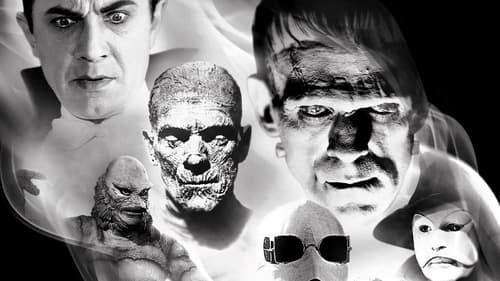
(archive footage)
Documental sobre el cine de terror de la Universal.

Gesandter des Vatikans

Wilhelm Hartmann

Lenura / Lenoir
The Falling Star (German: Der Fallende Stern) is a 1950 West German drama film directed by Harald Braun. It was entered into the 1951 Cannes Film Festival.
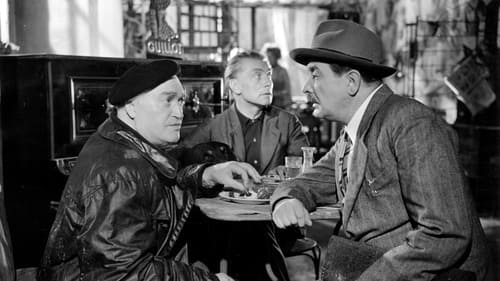
Dr. Schmidt
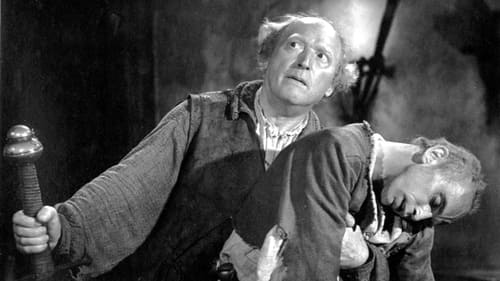
Paracelsus
A 1943 German drama film directed by Georg Wilhelm Pabst based on the life of Philippus von Hohenheim (Paracelsus). The film is one of several big nazi era productions with main characters regarded as propaganda-parables to Adolf Hitler (see also Ohm Krüger and Der grosse König).

Geheimrat von Holstein
German chancellor Otto von Bismarck promises the dying emperor Wilhelm I. to be loyal to his grandson. But the gap between young Kaiser Wilhelm II. and old Bismarck is rapidly widening. It soon appears that an era is coming to an end.

Justus Rottwinkel

Katasteramtsrat Reinhold Dörensen
On New Year′s Eve 1871 Annelie is born – 15 minutes too late, since her parents had calculated her birth to be exactly at midnight. These 15 minutes will again and again become the girl′s fate.
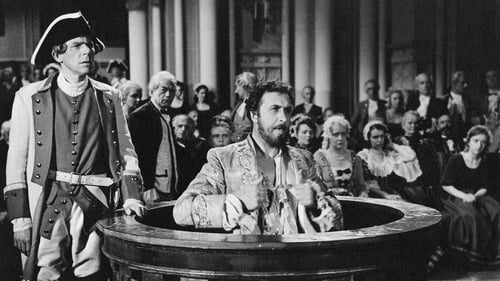
Rabbi Loew
Nazi historical drama about Duke Karl Alexander of Württemberg and his treasurer Süß Oppenheimer.

Geheimrat Rudolf Virchow
Country Dr. Robert Koch is desperate: a tuberculosis epidemic is decimating the children in his district and no one is able to do anything about it. Every fourth child is already sick and the parents must helplessly watch as their young ones die. Now Koch is undertaking to find the cause of the tuberculosis --- something he has already been working on for years --- which has been causing this plague of illness. His work is made more difficult by envy; for example, that of his teacher, who was wounded defending his honor. But his greatest obstacle is the famous Berliner scientist and Reichstag deputy, Privy Councilor Rudolf Virchow: He is extraordinarily skeptical of Koch's theory, that the cause for tuberculosis is a bacteria.


Friedrich Mitterer
In this convoluted melodrama, an elderly thespian falls for a rising young starlet. He admits his love for her and then announces that he will retire. The young woman pretends she loves him too, but her real motive is to give her struggling lover, also an aspiring actor, a break.

Napoleon

Heinrich Martin

General Ludwig Yorck von Wartenburg
The story of General Yorck von Wartenburg, a commander in the army of Prussian King Wilhelm, who defied the king's orders for the Prussian army to join Napoleon in his invason of Russia.

Napoleon
Napoleon at Saint Helena (German: Napoleon auf Sankt Helena) is a 1929 German silent historical film directed by Lupu Pick and starring Werner Krauss, Hanna Ralph and Albert Bassermann. The film depicts the final years of Napoleon between 1815 and 1821 during his period of exile on the British Atlantic island of Saint Helena following his defeat at Waterloo.

Botto
Botto the Clown is in love with the much younger Blanche but she is in love with the handsome daredevil acrobate Andre.

The Merry Farmer is based on the 1907 operetta of the same name.

Theophil Schimmelpfenning

Theobald Maske
A woman loses her undergarments in public. Chaos ensues.

Willibald Cooks
Tamara becomes addicted to cocaine but hides from her daughter by moving in with the dealer Mangol. The father tells his daughter that her mother has died, but years later the daughter rediscovers her mother appearing on stage. Mangol pursues the daughter, but Tamara intervenes before dying amongst family members.

Ibrahim Hulam

Fürst Colalto

Ortspolizist Suka
La primera coproducción germano-soviética procesó once cuentos de Chejov. En los créditos iniciales se lee: "Antes de la guerra, la gente de Rusia vivía en el interior de Rusia. Las 'bendiciones' de la civilización no les habían llegado. De esas personas superfluas que viven en una pequeña ciudad rusa habla esta película". Se trata de una farsa provincial idílica con acentos trágicamente conmovedores, exageraciones grotescas y humor grosero, caracterizada por una humanidad conciliadora. La película se creyó perdida durante mucho tiempo y se reconstruyó en 1978. (Eddie Constanti)

A non-access 35 mm print is held by Filmarchiv Austria.
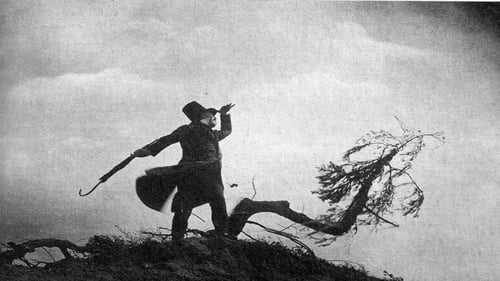
Scapinelli, Wucherer
For Balduin, going out to beer parties with his fellow students and fighting out disputes at the tip of the sword have lost their charms. He wants to find love; but how would he, a penniless student, ever dare looking up to any woman worth of loving? Absorbed in his dreary thoughts and indifferent to the advances of Lyduschka, Balduin is unexpectedly offered a fortune by the mysterious money-lender Scapinelli - but on a strange condition...
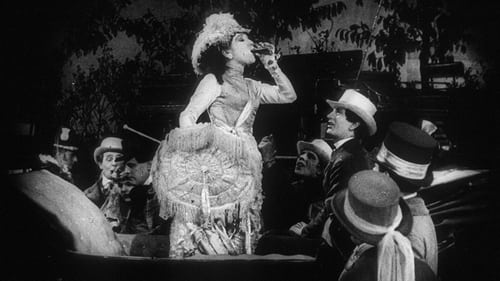
Count Muffat
Naná aspira a triunfar en el teatro. Después de un fracaso estrepitoso al interpretar el papel de dama distinguida, decide a aceptar las reiteradas proposiciones del Conde Muffat. Al mismo tiempo que se convierte en su amante se transforma también en una mujer cruel, indiferente y escandalosa. En "Nana" es indiscutible la influencia de "Esposas frívolas", de Erich von Stroheim (1921), donde la codicia se presenta como la pasión más destructiva del ser humano. Renoir le añade la abismal diferencia social entre criados y señores. El fracaso de la película dejo a Renoir completamente arruinado.
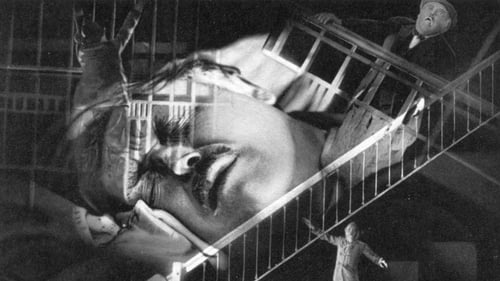
Martin Fellman
Un hombre afila su navaja de afeitar, se dirige al tocador donde se encuentra su esposa y, al proceder a afeitarle el pelo de la nuca le hace un corte accidentalmente al escuchar los gritos procedentes del vecindario.
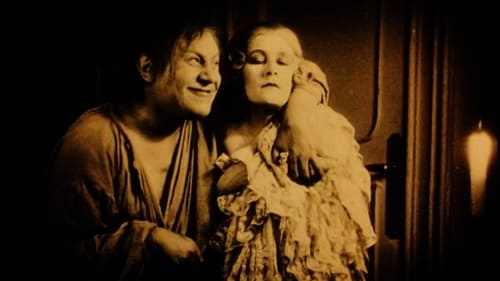
Herr Orgon
Fábula moral basada en la famosa comedia de Moliere sobre la hipocresía de un hombre que quiere adueñarse de una gran fortuna.

Der Idiot
Directed by Martin Berger.

Anton Zöllner

Un acróbata deja su familia por una joven, dedicándose a realizar ejercicios de acrobacia con ella en el trapecio. Un día, un famoso trapecista les invita a ambos a unirse a su show de Berlín.

Arent Bergh

Viehhändler engros

Josef Geiringer
Crítico retrato social de la Viena en los días posteriores a la Primera Guerra Mundial que provocó cierto escándalo por el realismo y el atrevimiento de sus imágenes. Fue una de las primeras películas en las que intervino Greta Garbo.

Jack the Ripper / Spring-Heeled Jack
Cuenta la historia de un joven escritor que acepta un anuncio para escribir historias en torno a las figuras que se exponen en un gabinete de estatuas de cera exhibido en una feria. La hija del dueño, muy pronto, queda atraída por el joven empleado...

Himself
The only surviving excerpt of a documentary on film production in Weimar Germany, featuring the different personalities of several famous directors of the era at work on the set including Fritz Lang, Robert Wiene, and E.A. Dupont.

Soldan
A Saracen sultan's disguised son loves an amnesiac Moslem princess.

Pontius Pilatus
From the director of Cabinet of Dr. Caligari, this is the Passion embedded in a contemporary story. An anarchist jailed for an attempted assassination is told the Passion story by the prison chaplain.

a silent movie by Robert Wiene
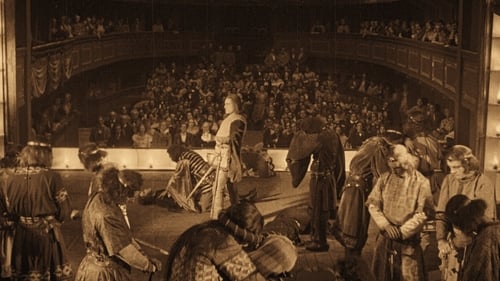
Nathan, der Professor
Baruch Mayer, son of an orthodox rabbi from a poor shtetl in Galizia, decides to break with the family tradition and leave the shtetl to become an actor.

Dr. Jüttner
Prince Karl Heinz enjoys his carefree life as a student in Heidelberg. He falls in love with the beautiful Käthe and everything is fine and dandy till his father is reported very ill.
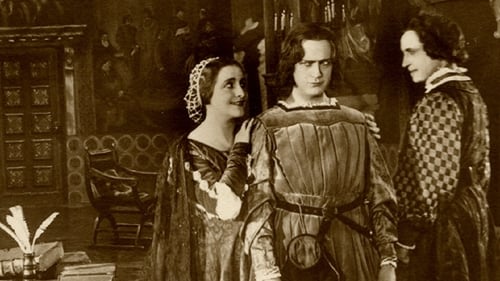
Shylock (Mordecai)
El comerciante veneciano Antonio se encuentra en una situación financiera difícil. Para ayudar a su amigo Bassanio, que trata de casarse con la heredera Portia, acude, aunque con disgusto mutuo, al prestamista judío Shylock para pedirle dinero prestado. Pero si Antonio luego no puede pagar ese préstamo, Shylock podrá cortar una libra de carne de su cuerpo. Ése es el trato.

Emil Raffke
"Raffke" was a war profiteer, shifter, the white-collar criminal, who came to wealth with not very clean methods in a short time and also likes to show it. And this film tells the story of Raffke's daughter Lilli, who, instead of marrying the Baron chosen by the father of vanity, marries a simple employee who is about to perish.

Svetelenz
On the surface a straightforward tale of the search for a buried treasure, the film is a textbook example of German expressionism, with the passions of the protagonists conveyed as much through symbolism as action.

Marc Muradock
A melodrama about a virtuous wife unjustly abandoned by her husband, who get him back with the help of a Hindu mystic.

Nathan
Silent movie adaptation of Lessing's play. Set in Jerusalem during the Third Crusade, it describes how the wise Jewish merchant Nathan, the enlightened sultan Saladin and the (initially anonymous) Templar bridge their gaps between Judaism, Islam and Christianity.

Der alte Rog / Old Rog
Drama rural de luchas familiares por la posesión de la tierra que escenifica la pasión y la codicia, las supersticiones y las leyendas, en una narración expresionista. (FILMAFFINITY)
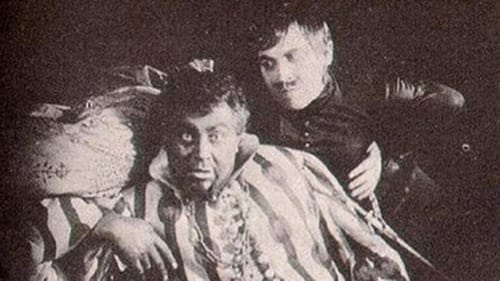
Iago
Even without the benefit of sound, the 1922 German adaptation of Othello seems more operatic than Shakespearean. This may be due to the casting of Emil Jannings, to whom restraint and subtlety were strangers. Werner Krauss, of Cabinet of Dr. Caligari fame, is on hand as the duplicitous Iago. Appearing as the unfortunate Desdemona is Lea Von Lenkeffy, better known as Lya de Putti. Produced on an elaborate scale, Othello may not be true to the letter of Shakespeare, but is undeniably a smorgasbord of visual delights.

Philipp Hogger

Lord William Hamilton
Biopic de Lady Hamilton, su auge y decadencia en la sociedad europea del siglo XVIII y principios del XIX, incluyendo la historia de amor con Lord Nelson.

Walter
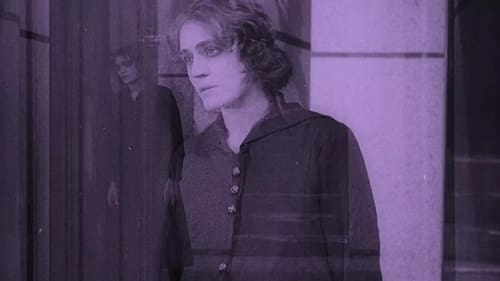
Bahnwärter
Scherben is about the everyday lives of a railway trackman, his wife and daughter in a remote, isolated house in a winter landscape, Mayer and Pick introduce increasingly stronger disturbances into their daily routines.

Robespierre
At the height of Reign of Terror Maximilien Robespierre orchestrates the trial and execution of several of his fellow leading French revolutionaries including Georges Danton.

Escape from the Golden Dungeon is the second part of the two-part silent movie Christian Wahnschaffe.

Harlander
Harlander, a media mogul and war profiteer, has been told that he has six months before his sanity will leave him completely. He hires a young nurse, and decides to spend all his money before his six months are up.

Tatjana's father

Ferryman
An abandoned baby is saved by a river god. Now aged 20, she yearns to see the world outside the water.
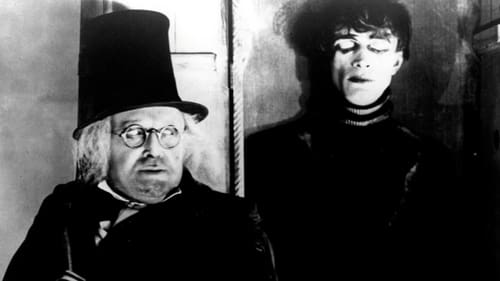
Dr. Caligari
Sentado en un banco de un parque, Francis anima a su compañero Alan para que vayan a Holstenwall, una ciudad del norte de Alemania, a ver el espectáculo ambulante del doctor Caligari. Un empleado municipal que le niega al doctor el permiso para actuar, aparece asesinado al día siguiente. Francis y Alan acuden a ver al doctor Caligari y a Cesare, su ayudante sonámbulo, que le anuncia a Alan su porvenir: vivirá hasta el amanecer.

Premier
After her brother is sent to Siberia, Sonja heads to Moscow to participate in a revolution.

The Cripple
In this apparently lost film, a beautiful dancer's sexual allure is used by an evil cripple to entice men to their deaths. Falling in love with one of the potential victims, she is told by the cripple that he will set her free if her lover, actually a murderer himself, survives and escapes a bizarre labyrinthe which runs beneath the cripple's house.

Der alte Bernd
An adaptation of the Gerhart Hauptmann play of the same name. A young farmer's daughter is used and abused by the men in her life.

Dr. Remus

Dr. Wenning
The daughter of a revolutionary runs away with a married prince.

Mazeppa
The film tells the story of Ivan Mazeppa, a Ukrainian page at the Polish court who has an affair with the young wife of a much older count. Outraged when he learns of the incident, the nobleman has Mazeppa tied naked to a wild horse which is then released into the wilderness. The bulk of the poem describes the long hazardous journey during which Mazeppa almost dies twice but ultimately survives and returns to his native Ukraine.

Mann
Hedwig and Lola, two sisters of opposite temperaments, have their lives upended in when Lola decides to pursue prostitution and Hedwig is forced into it.

Nung-Tschang
In China, Professor Gesellius has completed his long research on the many uses of opium. When he is about to return home, he hears about a special variety that produces fabulous sensations because of the way it is made, but can also cause the total destruction of the mind and body of the person who consumes it.

Philipp Galen
Dida Ibsen, daughter of impoverished farmers, has, according to her father's will, to marry the main creditor. But she refuses and decides to live with a married man as a mistress, till he gets his divorce. In the town she opens a restaurant with the money of her wealthy lover, from whom she soon gets pregnant, but their dreams of marriage fail, his wife refuses the divorce. After a while, she decides to marry one of the regular guests at her restaurant, van Galen, who spent quite some time in the tropics and because of this is at the brink of madness. Shortly after the marriage his condition worsens and life becomes hell for Dida.

Meinert

Waldemar Gorsky
A tyrannical landowner terrorizes his wife and seduces the daughter of one of his employees.

A tinted silent film about a murder plot.

The artist
An extremely jealous artist slips into a monkey costume and kills all those men who come too close to his wife, another artist.

Death
Based on several medieval mystery plays, including the late 15th-century English morality play "Everyman". The premise is that the good and evil deeds of one's life will be tallied by God after death, as in a ledger book. The drama is the allegorical accounting of the life of Everyman, who represents all mankind.

Georg Bertrand, a gambling addict and the son of a wealthy landowner, is kicked out of his family home. The director of a travelling circus takes him in. In time, Georg marries the director's daughter and himself becomes the director. Georg's brother visits the circus and recognizes him. Georg must now decide whether to stay with the circus or return to the family that kicked him out.

Conte Dapertutto
This movie, directed by Richard Oswald, is based on the operetta "Les contes de Hoffmann" by Jacques Offenbach (1819-1880), which is a genial musical potpourri from various short stories and novels by the Prussian writer, composer, painter, lawyer and judge E.T.A. Hoffmann (1776-1822). While Hoffmann's literary work was longtime considered to be merely fantastical, it was finally researched, in the last years, according to its metaphysical background. Characteristic for Hoffmann's work is his life-long fight against rationalism and for the revelation of nature morte, culminating mostly in carnival-like scenes anticipating literary techniques only described in the works of Bachtin and Bachelard.




















